Portugal has extended its national coronavirus lockdown for a further 15 days and promised to make protective gear widely available.
It said it would gradually reopen businesses if the spread of the disease continues to slow.
As the country flattened its curve of new cases, now at 18,841 with 629 deaths, a fraction of those in neighbouring Spain, the new presidential decree approved by parliament allowed for a gradual reopening of some services and companies.
It did not specify which ones or when, saying this would depend on data continuing to show a slowdown in the spread of the new coronavirus.
"We have to start reviving the economy while keeping the pandemic under control," said Prime Minister Antonio Costa shortly before parliament approved the third extension of the lockdown, now in place until 2 May.
Health Secretary Antonio Sales said yesterday that Portugal's coronavirus curve had flattened due to the "excellent behaviour and civic-mindedness of the Portuguese people" who obeyed the lockdown rules imposed by the government.
The coronavirus outbreak has hit various sectors of the tourism-dependent, export-oriented economy.
Around 80% of Portuguese companies either still operating or temporarily shuttered by the outbreak have reported a sharp drop in revenues, at times exceeding 75%.
The World Health Organization's European office has said that despite some "optimistic signs" in some of the countries worst hit by the new coronavirus, the number of cases was rising and approaching one million in the continent alone.
"We remain in the eye of the storm," WHO regional director for Europe, Hans Kluge, told a news conference, noting that about half of worldwide confirmed cases were in Europe.
Mr Kluge's comments came amid news that the coronavirus has killed more than 90,000 people in Europe, amounting to over 65% of the overall global death toll.
With a total of 90,180 deaths out of some 1,047,279 infections, Europe is the hardest-hit continent by the pandemic, which has killed a total of 137,499 worldwide.
Mr Kluge noted the UN health body had seen positive signs in terms of "declining numbers" in Spain, Italy, Germany, France and Switzerland.
However, he said the "positive signals" in some countries were overshadowed by sustained or increased levels in other countries, such as Britain, Turkey, Ukraine, Belarus and Russia.
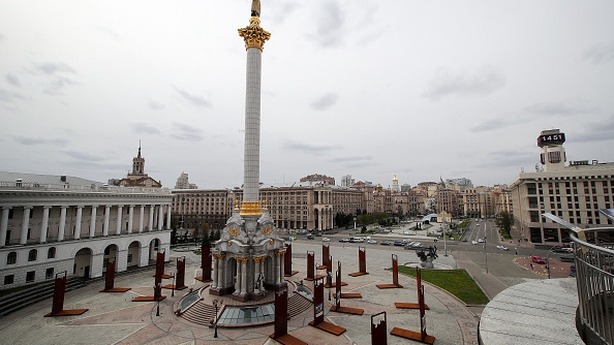
As some European countries have started to ease some of the restrictions put in place to curb the spread, Mr Kluge urged them to make sure that control mechanisms were in place.
He said countries needed to make sure evidence showed that transmission was under control, adding that countries also needed to ensure that healthcare had the capacity "to identify, isolate, test, trace contacts and quarantine".
Mr Kluge also stressed that risks needed to be minimised in high-vulnerability settings, such as retirement homes and areas were people live in crowded places.
Workplaces also needed to take preventative measures, and countries needed to manage importation risks, he added.
If countries could not ensure these criteria, Mr Kluge urged them to "please re-think".
Yesterday, Denmark became the first country in Europe to start reopening schools, while Finland lifted a travel blockade on the Helsinki region.
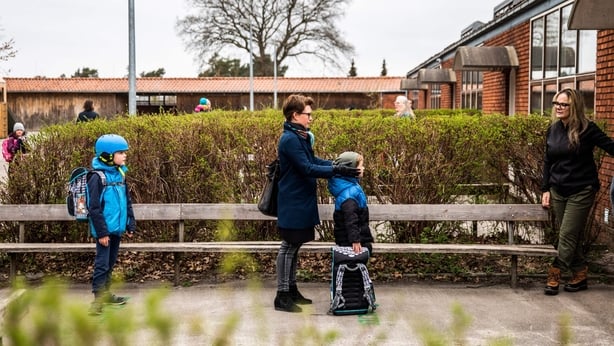
Austria, Italy and Spain have also allowed some businesses to reopen.
Switzerland has announced a three-stage easing of restrictions, with some stores and services allowed to reopen from 27 April.
"In light of epidemiological developments and the recommendations of scientists, the Federal Council has decided to relax measures to protect the population against the new coronavirus from 27 April," the government said in a statement.
Venice creeps back to life after virus lockdown
The Italian city of Venice slowly stirred back to life this week as some shops reopened and residents tentatively ventured outside, all in masks while keeping a safe distance from others.
Italy allowed bookshops and stationery and children's clothing stores to reopen across the country from Tuesday, the first easing of strict lockdown rules in place nationwide since 9 March.
While some regions refused to adhere to the new guidelines, fearing a resurgence of the outbreak that has devastated the country, Venice allowed some shops to resume business.
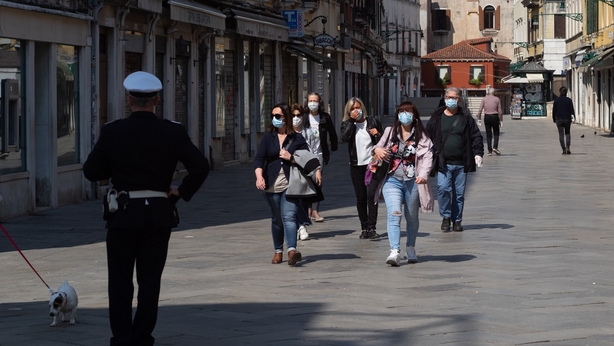
In the Veneto region, of which Venice is the capital, stores were allowed open two days a week.
The gradual reopening of Italy's battered economy has been dubbed "Phase Two" by the government.
The International Monetary Fund projected this week that Italy's growth could dip by 9.1% this year.
Tourist havens such as Venice have been particularly pummelled by lockdown orders that have kept millions indoors and closed all stores except for essential supermarkets and pharmacies.
Spain coronavirus death toll surpasses 19,000
Spain has seen its coronavirus death toll top 19,000 after another 551 people died of Covid-19, with the numbers reflecting a staggered slowdown after nearly five weeks on lockdown.
One of the worst-hit countries in the world, Spain has seen the increase in the number of deaths and infections slow over the past fortnight, with the overnight fatalities taking the toll to 19,130.
It also recorded 5,183 new cases of Covid-19, taking the overall figure to 182,816, officially second highest in the world behind the United States.
Meanwhile, Greece will this month begin moving hundreds of elderly and ailing asylum seekers out of congested island camps to protect them from the coronavirus, the migration ministry has said.
The ministry said 2,380 "vulnerable persons" will be moved out of camps on Aegean islands to apartments, hotels and other camps on the mainland.
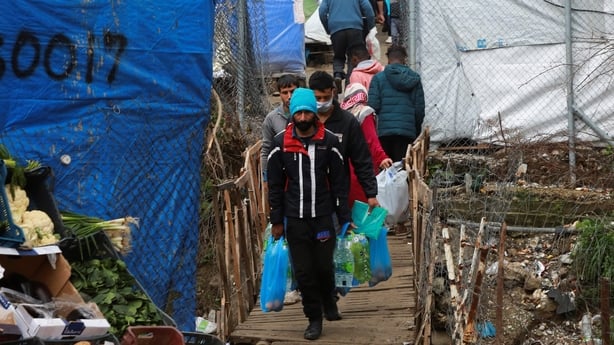
Authorities said the two-week operation will begin after 19 April, Orthodox Easter, and that a timetable would be announced at a later date.
"This additional protective measure aims to further reduce the risk of a (virus) outbreak," the ministry said.
Those to be moved include 200 asylum-seekers over the age of 60 who will be accompanied by their families. Another group of 1,730 includes people with prior ailments and their relatives, the ministry said.
No coronavirus case has been officially reported in camps on the islands of Lesbos, Chios, Samos, Leros and Kos. But there have been outbreaks in two camps on the mainland.
Some 100,000 asylum seekers are currently stranded in Greece after other European states closed their borders in 2016.
The camps on islands near Turkey suffer the worst overcrowding with more than 36,000 people in sites built for 6,100.
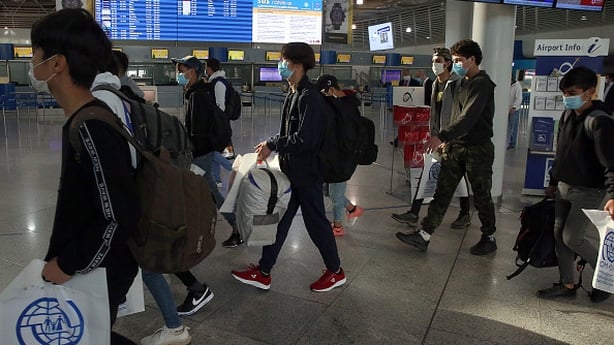
A separate scheme to gradually relocate 1,600 unaccompanied minors from war-torn countries to other European nations also began this week.
A group of 12 migrant children from Lesbos, Samos and Chios left Greece for Luxembourg yesterday.
A second group of 50 will fly to Germany on Saturday and 20 more will follow to Switzerland at a later date, the migration ministry said.

